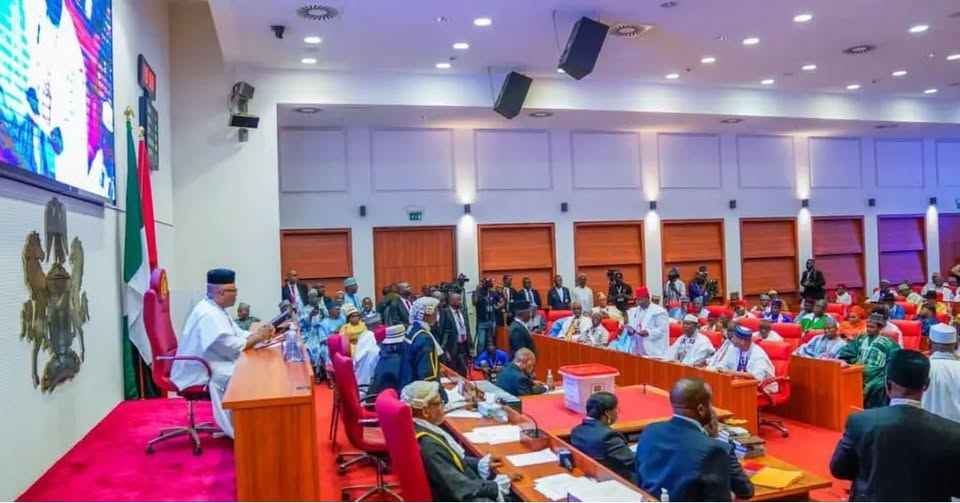Headlines
Senate Approves Tax Reform Bills for Second Reading

The Nigerian Senate has passed critical tax reform bills for second reading, paving the way for significant fiscal policy changes.
On Thursday, the Senate approved the second reading of four tax bills through voice votes.
On October 3, President Bola Tinubu sent the four tax reform bills to the National Assembly for consideration.
The decision sparked controversy as Northern governors and other stakeholders opposed the tax reforms. Concerned about the backlash, the Presidency clarified that these bills were not aimed at any specific region but intended for national development.
The Senate has approved on second reading a bill intended to create the Joint Revenue Board, the Tax Appeal Tribunal, and the Office of the Tax Ombud as elements of Tinubu’s extensive tax reform initiative. This proposed legislation aims to harmonize efforts, coordinate activities, and resolve disputes related to revenue administration in Nigeria.
During the session, lawmakers discussed the general principles of the tax reform bills. Prior to this, the Senate held a private meeting to review four bills sent by President Tinubu on September 3, 2024. These were based on recommendations from the Taiwo Oyedele-led Tax Reforms Committee.
Although the reforms were widely recognized as essential for revamping Nigeria’s tax system and alleviating the tax burden on citizens, Sen. Ali Ndume raised concerns about both the timing and specific aspects of the bill.
He proposed that the reforms, with necessary amendments, could be approved “in less than 24 hours” if they were withdrawn and reintroduced.
Nonetheless, the Chief Whip firmly disagreed with this perspective, stressing the need to move the bill forward to the public hearing stage.
The bill ought to pass the second reading and be thoroughly examined during the public hearing. Then, it can proceed to clause-by-clause consideration.
Senator Ali Ndume, the sole dissenting voice, stated: “I am not opposed to reforms; they are necessary. However, my concern lies with the timing in Nigeria today. I would like to add to what Senator Seraike mentioned.”
Someone will attend the public hearing on the issue of derivation because certain proposals in the Bill require a constitutional amendment to be implemented.
READ ALSO: Tax Reform Bills: Drama Unfolds in Senate as Tinubu’s Economic Team Attends
This bill should be withdrawn so that we can revise it and resubmit once we’ve secured the support of the Governors, Traditional Rulers, and NEC.
I reviewed the bill, and it includes numerous items, particularly VAT and Derivation. Please negotiate initially before we finalize our stance.
“It may appear appealing, but it might not be as it seems. If a tax burden is placed on the manufacturer, they will likely pass it on to consumers.”
In the bill, we propose a reduction from 30% to 25%, indicating that someone in Nnewi who can no longer earn billions is being treated the same as someone not actively contributing.
On October 3, President Bola Tinubu submitted four tax reform bills to the National Assembly for their consideration.
The bills are: the Nigeria Tax Bill 2024, anticipated to establish the fiscal framework for taxation in the country; and the Tax Administration Bill, which aims to offer a clear and precise legal foundation for all taxes within Nigeria, thereby minimizing disputes.
The remaining bills include the Nigeria Revenue Service Establishment Bill, which aims to replace the Federal Inland Revenue Service (FIRS) Act and establish the Nigeria Revenue Service, as well as the Joint Revenue Board Establishment Bill, designed to set up both a tax tribunal and a tax ombudsman.
The president expressed that the legislation would enhance Nigeria’s fiscal institutions and align with his administration’s wider development objectives.
